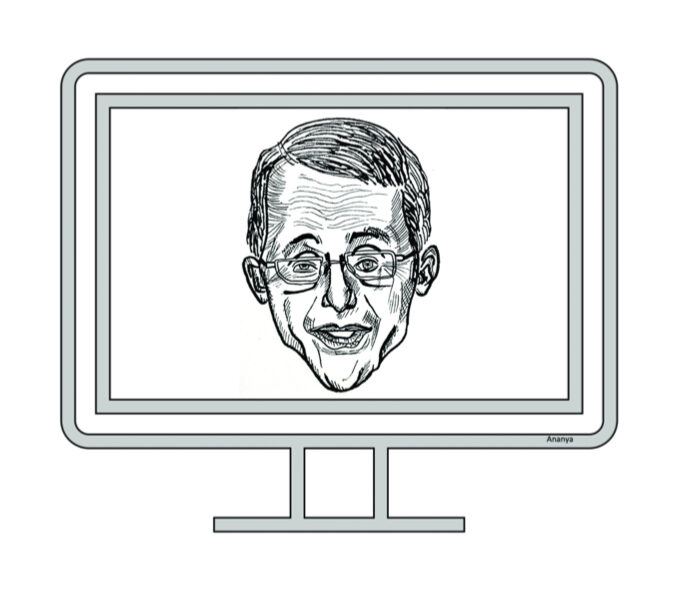Dr. Anthony Fauci, chief medical advisor to President Biden, presented McGill’s 67th annual Beatty Lecture on Oct. 1. Titled Covid-19: Lessons Learned and Remaining Challenges, the virtual lecture garnered an audience of over 2,000 viewers. Every year, McGill invites an influential guest to discuss their professional experiences and provide insight into their respective field for members of the McGill community. Previous Beatty lectures were headlined by thinkers like Margret Atwood, Jane Goodall, and Muhammad Yunus. Ahead of Fauci, Suzanne Fortier, McGill’s principal and vice-chancellor, spoke to the significance of the annual event for the university.
“The Beatty Lecture is an important part of the McGill story,” Fortier said. “As one of Canada’s longest-running endowed lectureships, the Beatty is a testament to our university’s enduring commitment to excellence and to the exchange of ideas.”
Martha Crago, McGill’s vice-principal (Research and Innovation), introduced Fauci, highlighting his contribution and service as one of the world’s leading experts in infectious diseases.
“Driven to shed light on the unknown, scientists of the world have achieved amazing breakthroughs since the outbreak of COVID-19, such as applying mRNA technology for the first time to the development of vaccines,” Crago said. “Those breakthroughs owe an unsung debt to the building blocks of basic research conducted by Dr. Fauci and others well before the outbreak of this pandemic.”
Throughout his lecture, Fauci explained the similarities scientists have observed between the COVID-19 pandemic and other virus outbreaks. He detailed the scientific characteristics of the current coronavirus and its many variants, noting that they pose a particularly demanding public health challenge. Fauci also spoke about how the lessons learned from previous pandemics have helped shape the public health response to the COVID-19 pandemic.
“Emerging infections, including what we are going through, is truly a perpetual challenge,” Fauci said. “History has shown us that in order to meet the perpetual challenge we must be perpetually prepared, which is why I do hope that what we have learned and will learn from this outbreak does not escape our […] memory as we emerge from the scourge of this outbreak.”
Following the lecture portion of the event, Nahlah Ayed, lecture emcee and host for CBC Radio Ideas, moderated a prepared Q&A session where Fauci took questions from the audience as well as members from the McGill community about the pressing COVID-19 issues. When asked about the right of personal liberty in the context of this public health crisis, Fauci explained that individuals must put aside their perceived personal autonomy in order to promote the collective health of the public.
“I think what people have to appreciate is that indeed, you do have personal liberties for yourself and you should be in control of that,” Fauci said. “But you are a member of society, and as a member of society, reaping all the benefits of being a member of society, you have a responsibility to society [….] Particularly in the context of a pandemic that’s killing millions of people, [there] comes a time when you do have to give up what you consider your individual right [to make] your own decision, for the greater good of society.”
Following the event, McGill presented Fauci with an honorary doctorate of science, McGill’s highest honour.








